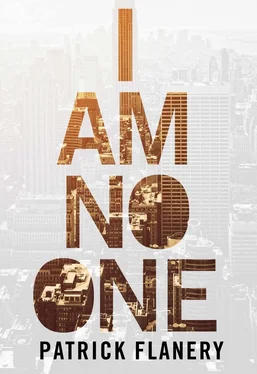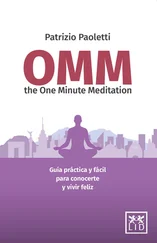‘I guess it is the same party,’ I frowned, turning over in my memory our conversation on Saturday afternoon, looking for any clues that would tell me more about him, or what his intentions might be. ‘I’m the hostess’s father. Jeremy O’Keefe.’
‘I thought it was you. I was at the wedding. Peter and I were in grad school together. I’m Michael Ramsey.’
The name fit my impression of his likely background, an old New England family, perhaps, though it was increasingly difficult to tell, and the prestige associated with such lineages no longer has much currency in wider society. Yet Michael Ramsey carried himself with an air of privilege assumed rather than won that I found off-putting, although some of my initial wariness was an instinctive aversion to his tone in our two encounters and, on this second chance meeting, the sense of resentment I felt at his intrusion into what I had thought of as a family event. In fact I knew Peter and Meredith were expecting some fifty guests for the parade breakfast and many of these people would be professional acquaintances, while only twenty were staying for dinner itself, all of whom would be close friends, I supposed, or family. I tried to calm myself down before we arrived at my daughter’s door, making certain I was in the lead, so that I would ring the doorbell and be first inside and Michael Ramsey, whoever he was, would know his place.
It was clear from the introductions that, though invited, Michael was not a part of my daughter’s intimate circle of friends and over the course of that morning I got the idea that even Peter did not know him particularly well, that perhaps Mr. Ramsey was one of those graduate school hangers-on who tries to wheedle himself into the life of his friends because his own is so dull.
‘Where did you find him?’ I asked Meredith when I got her alone in a far corner of the living room.
‘He and Peter were in some club together. They fell out of touch for a while and then he suddenly surfaced a few years ago. Peter says he’s harmless. He seems nice, don’t you think?’
‘He seems like a prick.’
‘Oh, Dad, don’t be such a grump. Have a glass of champagne.’ She motioned to a waiter who glided across the room with a tray full of glasses.
‘I think Mr. Ramsey is following me.’
Meredith turned back to me, grimacing.
‘He doesn’t even know you. You’ve never met him before.’
‘But we have met.’
Again, a grimace — of disbelief or, perhaps, more accurately, a look of panic and unbelief, of total incredulity, as though the words she was hearing made my daughter believe in my own non-existence, as if in revealing myself as a paranoiac (not without cause, but she did not know that at the time, or at least I still trust, I want to believe, that she was innocently unaware) I had negated the image of fatherhood, of the parent-being, in which she always placed her trust, however compromised that trust might have been or felt — we have never really discussed it — when I moved out of the family home and across an ocean.
She took a glass from the waiter and put it in my hand, then took one for herself. We clinked glasses and she turned her head to look out towards the park and the parade as if she wanted to blind herself to her own unbelief in me, or perhaps, as if in no longer believing in me as the man she thought she knew, she could not bear to look at me, or even in looking found that the man before her was suddenly so unlike the man she thought was her father that she could not resist looking away, averting her eyes to protect an interior vision of the person she thought she knew, of the man I had once been, when still young and occupying a territory of sanity so vast I could not even conceive of it having reachable limits.
I regretted what I had said because it was obvious how happy Meredith was in having this party, to be able to host a room full of well-dressed and beautiful rich people, access to whom her mother and I could never have provided. This is not to suggest that Meredith is a social climber, she is one of the most grounded people I know, and yet I know and appreciate that because of the nature of her profession, having access to the enormously wealthy means the potential for a degree of success that might otherwise prove elusive or even permanently unattainable. Peter paid for her gallery space and start-up costs, and Peter made the introductions to collectors, but it is Meredith’s eye and taste and business acumen that will turn hers into a leading gallery, I have no doubt. Like the dinner on Saturday night, the Thanksgiving-morning party was as much about business as a private social life. It occurred to me, looking at my daughter trying to reassemble the joy of the occasion after my odd intervention, that there was only a thin and quite porous boundary between professional and private in her and Peter’s world. They run their home as a site of commerce, as the staging ground for relationships and events that work on behalf of their professional pursuits. It was as alien a concept to me as if they did the opposite, keeping their home instead exclusively for themselves, allowing no one inside except other members of their respective families. Ordinary, mainstream sociability was always the order of my and Susan’s home. This was true of the homes she and I each grew up in, different though they were. Friends were invited for dinners and brunches, family came on holidays, but business associates were always something of a rarity, perhaps because our fathers, while professionals, were not particularly far up any corporate ladder and neither man was a striver, both of them disinclined to work hard for advancement, believing it was enough to be solid and reliable, not to appear to their bosses or upper management as if they had ideas above their particular station, so when colleagues were invited, at least in my own childhood home, they were my father’s equals, and the gatherings were ones of friendship rather than any calculated attempt to solidify a professional position.
‘What do you mean you’ve met?’ Meredith was drinking her champagne too quickly and I knew I risked spoiling the day if I shared any of the thoughts I was then imagining might be true about Mr. Ramsey. Instead I sipped my champagne and watched the young man lingering near the terrace, talking to no one, but appearing rapt by the pageantry passing below on the street, as if he were in a state of wonder, a child marveling at the world and the giant balloon creatures floating just beneath the window and bent more than double because of the winds that day, staring as if he had never seen anything like it even though every American alive in the last few decades, unless he or she has lived in isolation without access to the media, has grown accustomed to the surreal spectacle of inflated cartoon giants floating down Central Park West in celebration of the national holiday.
Living in Oxford all those years, I found Thanksgiving produced the most acute feelings of homesickness and nostalgic longing, made worse by the fact that on those fourth Thursdays every November I would usually spend the whole day teaching, and often at least one of my students was an American and the two of us would look at each other in recognition of our displacement and the fraught togetherness produced by the holiday that we were both missing — or if there were no other Americans about, some thoughtful British student would usually wish me a Happy Thanksgiving at the end of the tutorial and ask if I was going out for dinner. Sometimes, I devoted part of my lessons on that day to the origins of the holiday. Thanksgiving, first recorded in English in 1533, a quotation from Tyndale, I would read out from my OED: thankes giuyng , and then, two years later, in a translation of the Bible, thankesgeuynge. The Book of Common Prayer , 1552, and then Shakespeare used it, Love’s Labour’s Lost , 1598, before the Pilgrims had their own in 1621. Lincoln made it national. One or two of the Colleges, although not mine, made a point of catering to the homesick longings of its American members and would produce an ersatz version of a turkey dinner. I attended such meals on half a dozen occasions but always found that instead of assuaging my sense of homesickness they only made it more acute. Surrounded by so many British people (many of whom seemed to think the whole affair vaguely ridiculous, sneering at any tradition, holiday, or manner of speaking that had grown up on this continent), I would forswear going to such gatherings in the future and might decline similar invitations the following year, only to find the experience of being alone in England and passing the day with no acknowledgment of the holiday was even worse than an imperfect celebration. In a way, there could be nothing more typical of Thanksgiving than a day spent in disappointment, or in only partial merriment, a holiday in which someone among the group irritates the hell out of you with his offensive jokes or rude behavior, but whose company you are obliged to tolerate for the sake of wider peace, or because he is your sister’s new boyfriend or your daughter’s husband or, as in Oxford, your senior colleague who exercises a different kind of power over your life. It was, after all, a holiday made official in a time of civil war, an occasion that was, perhaps in its broadest philosophical impulse, about bringing together opposing sides in a domestic conflict and letting them cease their fire long enough to break bread and tear a dead bird limb from limb, a holiday tradition built on giving thanks for the success of the first settlers’ attempts to colonize.
Читать дальше












